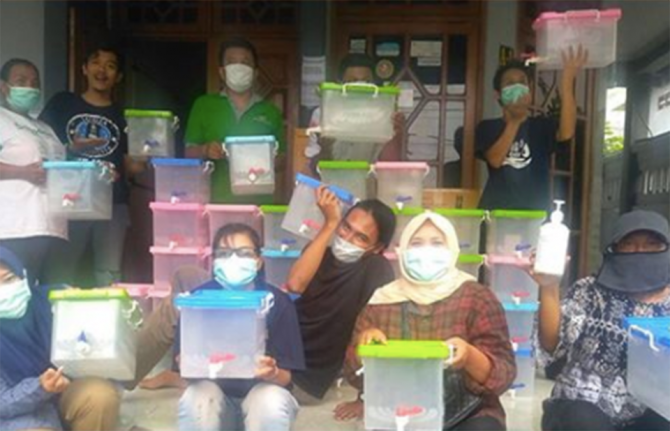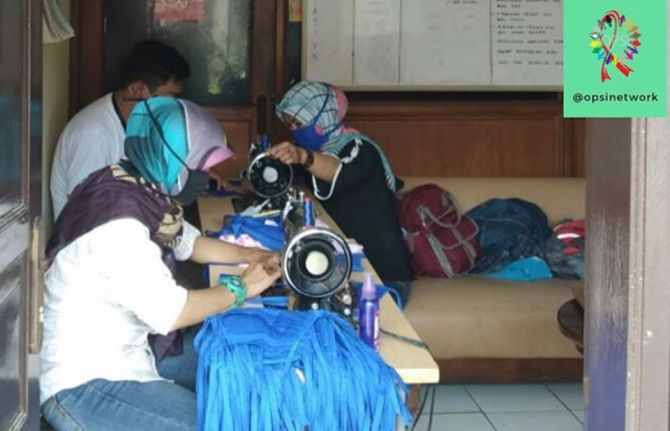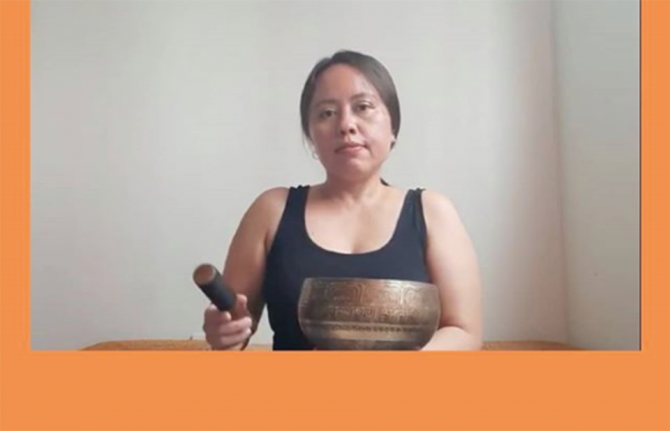



Feature Story
Sex workers adapting to COVID-19
21 April 2020
21 April 2020 21 April 2020Although difficult for everyone, the COVID-19 pandemic has had severe impacts on key populations, many of whom are experiencing economic hardship and anxiety about their health and safety.
Rito Hermawan (also known as Wawan), the Advocacy Coordinator of the Network of Sex Workers of Indonesia (OPSI), explained that the places that sex workers work in Indonesia have been closed down. Since, for their own safety, sex workers are avoiding working on the streets, many have been left without an income, unable to make ends meet.
It’s been about a month since Indonesia enacted a set of preventive measures against COVID-19. With the uncertainty of when life may return to normal, OPSI is supporting the urgent needs of the sex worker community.
Many sex workers are increasingly needing mental health support to combat the stress and anxiety they are currently experiencing. In a rapid survey conducted by the Indonesian Positive Network to review the needs of people living with HIV and key populations, more than 800 out of 1000 people surveyed expressed a need to access mental health and psychosocial support.
In order to address this, OPSI uses social media to provide virtual mental health support. “Through our social media, we are able to reach sex workers and empower them with information, motivation and support. They need to know that they are not alone, even though we may not be physically close,” said Mr Wawan.
A video teaching meditation and breathing techniques was recently launched to help sex workers cope with stress and to improve their general well-being. OPSI is also highlighting innovative work, such as making masks for sex workers during the COVID-19 pandemic. For those who need one-on-one support, OPSI has also established a counselling hotline.
In addition to supporting the sex worker community in Indonesia, OPSI is also exploring ways for outreach efforts to be continued despite the current conditions. The essential work of outreach workers should not come to an abrupt halt because of COVID-19, but it will need to move to a virtual form.
With technical assistance from the United Nations Population Fund Indonesia, OPSI developed a module on virtual outreach. The module outlines how outreach workers can adapt their work online, such as by using WhatsApp. The outreach workers are provided with lists of HIV counselling and testing services that are still open in 88 districts in Indonesia, which they can use to refer sex workers.
Sex workers, like others, are facing incredible hardships during the COVID-19 pandemic, whether it be struggles with their mental health, difficulty in continuing their work and loss of income. The role of networks and organizations of sex workers like OPSI is incredibly important in ensuring that the needs of sex workers are supported at this vital time.



